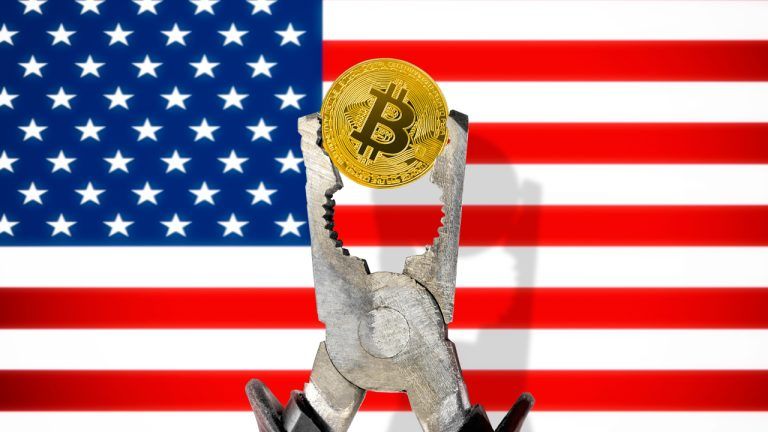Annnnnd I'm back! I really needed to spend my holidays without Reddit (it's regenerating, you should try). I was thinking writing about the most interesting and important crypto games at the moment, since I analyzed almost every coin in the top 30-40. What do you think?
If you are interested to the previous posts of this series, check it out here:
- Algorand (ALGO)
- Avalanche (AVAX)
- Axie Infinity (AXS)
- Basic Attention Token (BAT)
- Binance Coin (BNB)
- Binance USD (BUSD)
- Bitcoin (BTC)
- Bitcoin Cash (BCH)
- BitTorrent Token (BTT)
- Cardano (ADA)
- Chainlink (LINK)
- Chiliz (CHZ)
- Cosmos (ATOM)
- Crypto.com Coin (CRO)
- Decentraland (MANA)
- Dogecoin (DOGE)
- Elrond (EGLD)
- Enjin Coin (ENJ)
- Eos (EOS)
- Ethereum (ETH)
- Ethereum Classic (ETC)
- Ergo (ERG)
- Fantom (FTM)
- Harmony (ONE)
- Hedera Hashgraph (HBAR)
- Helium (HNT)
- Internet Computer (ICP)
- Iota (IOTA)
- Litecoin (LTC)
- Loopring (LRC)
- Monero (XMR)
- MultiVAC (MTV)
- Nano (NANO)
- Nervos Network (CKB)
- Pancake Swap (CAKE)
- Polkadot (DOT)
- Polygon (MATIC)
- Sandbox (SAND)
- Solana (SOL)
- Stellar Lumens (XLM)
- Terra (LUNA)
- Tether (USDT)
- Tezos (XTZ)
- Theta (THETA)
- Tron (TRX)
- Uniswap (UNI)
- USD Coin (USDC)
- VeChain (VET)
- Wrapped Bitcoin (WBTC)
- XRP (XRP)
Many people can't sleep well at night because they think their wallet could be compromised and their crypto stolen. However, storing safely your cryptocurrency is easier than it may seem at first glance.Buying and holding cryptocurrency is one thing while safely storing it requires completely different skills and knowledge.
This guide teaches you how to protect your funds, choose the right wallet and avoid the most common crypto security risks.
What is a Crypto Wallet?
A cryptocurrency wallet is a software program designed to store your public and private keys, send and receive digital currencies, monitor your balance, and interact with various blockchains. You must have a cryptocurrency wallet to manage your crypto assets and keep them safe. There are many cryptocurrency wallets out there, but the essential distinction between them is whether they are hot or cold
- A hot wallet is connected to the internet and can be accessed at any time.
- A cold wallet is not connected to the internet and allows you to store your funds offline. You can still receive funds at any time, but no one can transfer them.
Hot Wallets include all online cloud wallets, many mobile, software wallets and exchanges. Cold Wallets are hardware wallets, paper wallets stored offline, offline storage devices, USBs and even items that you can physically carry like physical Bitcoins. Most cryptocurrency holders use both cold and hot wallets. Hot wallets are useful for frequent trading, while cold wallets are better for long-term storage of crypto assets. But before we explore the different wallets, here's a quick reminder of why keeping your digital assets on exchanges is generally not a good idea.
Types of Crypto Wallets
There are four distinct categories of cryptocurrency wallets: paper, hardware, cloud, and online. Let's take a look at each of them.
- Paper wallets: Paper wallets are generally classified as cold wallets. The term "paper wallet" generally refers to a physical or hard copy of public and private keys. Other times it means software used to generate a key pair along with the digital file for printing. Whatever the case may be, paper wallets can provide you with a relatively high level of security. You can import the paper wallet into a software client or simply scan the QR code to move funds. If a paper wallet is available for the cryptocurrency of your choice, you're likely to find guidance on how to create one on the project's website or community page. MyEtherWallet is a universal system for creating a paper wallet for Ethereum and all ERC-20 tokens. Use the Bitcoin Paper Wallet Generator to generate a paper wallet for Bitcoin. Although paper wallets are cool, they also have their share of risks. For example, paper wallets can be easily damaged, burned, are easy to copy and take pictures of and require mutual trust if you don't create them yourself. To make paper wallets less fragile, people sometimes laminate them, create multiple copies and store them in different places, engraving them on pieces of metal or other durable materials, etc. Note that it is a bad idea to keep electronic copies of your paper wallet on your PC. The private key to your paper wallet should always be kept offline. Keeping your paper wallet files online makes it as secure as a hot wallet.
- Cloud wallet: Online wallets, by definition, are hot. Using a cloud wallet, you can access your funds from any computer, device or location. They are super convenient, but they store your private keys online and can be controlled by third parties. Therefore, they are more vulnerable to attacks and theft since their design. The most popular cloud wallet is Metamask
- Software Wallets: Software wallets are downloaded and installed on personal computers and smartphones. They are hot wallets. Both desktop and mobile wallets offer a high level of security; however, they cannot protect you from hacks and viruses, so you should do your best to be malware-free. As a rule, mobile wallets are much smaller and simpler than desktop wallets, but you can easily manage your funds using both. Also, some software wallets allow you to access your funds via multiple devices at once, including smartphones, laptops, and even hardware wallets.
- Atomic Wallet
- Exodus
- Electrum Wallet
- Infino Wallet
- Hardware Wallet: Unlike software wallets, hardware wallets store your private keys on an external device like USB. They are completely cool and secure. They are also capable of making online payments. Some hardware wallets are compatible with web interfaces and support multiple currencies. They are designed to make transactions easy and convenient, so all you have to do is connect it to any online device, unlock the wallet, send currency and confirm a transaction. Hardware wallets are considered the most secure means of storing crypto assets. The only drawback is that they are not free. The most popular hardware wallets are:
- Ledger
- Trezor
- KeepKey
Getting a hardware wallet directly from a manufacturer is the safest way. It is not safe to purchase it from other people, especially those you don't know. Remember that even if you get a hardware wallet from a manufacturer, you still have to initialize and reset it yourself. Generally, the choice of hardware wallet depends on your wallet. Every serious project should have its own native wallet that should be found on its website, but sometimes it can be more convenient to have a multi-currency wallet. Keep in mind that not all multi-currency wallets support all coins. Even hardware wallets have a limited amount of coins they support. On the other hand, there are many wallets for popular cryptocurrencies like Bitcoin or Ethereum. Once you get a cryptocurrency wallet (hardware) you will also need to protect your seed phrase for private recovery. One of the most reliable keyword protection tools is CryptoTag which allows you to store them on virtually indestructible titanium plates.
If you have come this far, you're a champ! The best part starts from now!
Best security practices to prevent theft of private keys
So you've decided to take control of your crypto assets and keep everything in a private wallet. Very good! However, with great power comes great responsibility and now it all depends on your ability to stay safe and keep your private keys private. The most common security measures to take are:
- Don't store cryptocurrency on an exchange for an extended period or longer than necessary (if you hold a small amount or are a daytrader, this rule in unnecessary)
- Always enable two-factor authentication (2FA).
- If you choose a hardware wallet, choose a pin code that is hard to guess and never put the 24-word recovery sheet online.
- Don't publicly talk about your crypto holdings under your real name or identifying address.
- Trust only what you see on the screen of your hardware wallet and verify all information on the device.
- Always expect that your devices can be compromised at any time, so always treat your computer or smartphone screen with care.
Also, follow these tips to minimize the chances of losing your crypto.
- Be aware of phishing sites. Whether you are logging into the exchange or online wallet, confirm that you are logging in at the right address. Many fake websites mimic exchanges for the sole purpose of stealing your login information. Always check that the website address is correct.
- HTTPS. Log in only to secure websites with a valid HTTPS certificate. Most legitimate sites have one. For added security, try browser plug-ins like "HTTPS everywhere."
- Use a secure Wi-Fi connection. Never connect your online wallet, exchange account or other critical security point via public WiFi. Even when you're in a supposedly secure location, make sure your WiFi access point uses advanced encryption such as the WPA-2 protocol.
- Segregate your funds. Don't store all of your cryptocurrency in one place. The best way to manage it is to use one or more cold wallets for long-term positions and at least one hot wallet for trading and transactions.
- Two-Factor Authentication. Always protect your accounts with 2FA. Whenever possible, use 2FA software or hardware tools instead of SMS.
- Whitelist IP Addresses and Withdrawal Addresses. If you have a static IP address, use it for your own security. Make sure only you can access your accounts and funds.
- Double check crypto addresses. Some malicious programs can change and paste an incorrect transaction address every time you submit a transaction. Typically, the new address belongs to a malicious user. Prevention is better than cure.
Last but not least, use security measures that you can handle. Some people never feel safe enough and will go to extreme lengths to protect their cryptocurrencies. However, they forget that they can also lose their crypto because of their security tools. Losing access to accounts, funds or wallets is as common as hacks. Don't overcomplicate your security, losing your funds because of yourself could be even worse than being scammed by someone else
[link] [comments]

You can get bonuses upto $100 FREE BONUS when you:
💰 Install these recommended apps:
💲 SocialGood - 100% Crypto Back on Everyday Shopping
💲 xPortal - The DeFi For The Next Billion
💲 CryptoTab Browser - Lightweight, fast, and ready to mine!
💰 Register on these recommended exchanges:
🟡 Binance🟡 Bitfinex🟡 Bitmart🟡 Bittrex🟡 Bitget
🟡 CoinEx🟡 Crypto.com🟡 Gate.io🟡 Huobi🟡 Kucoin.




















Comments